Advertisement
Documentary Resurrects Civil Rights Crusader's Battle To Ban 'Birth Of A Nation' In 1915 Boston
Resume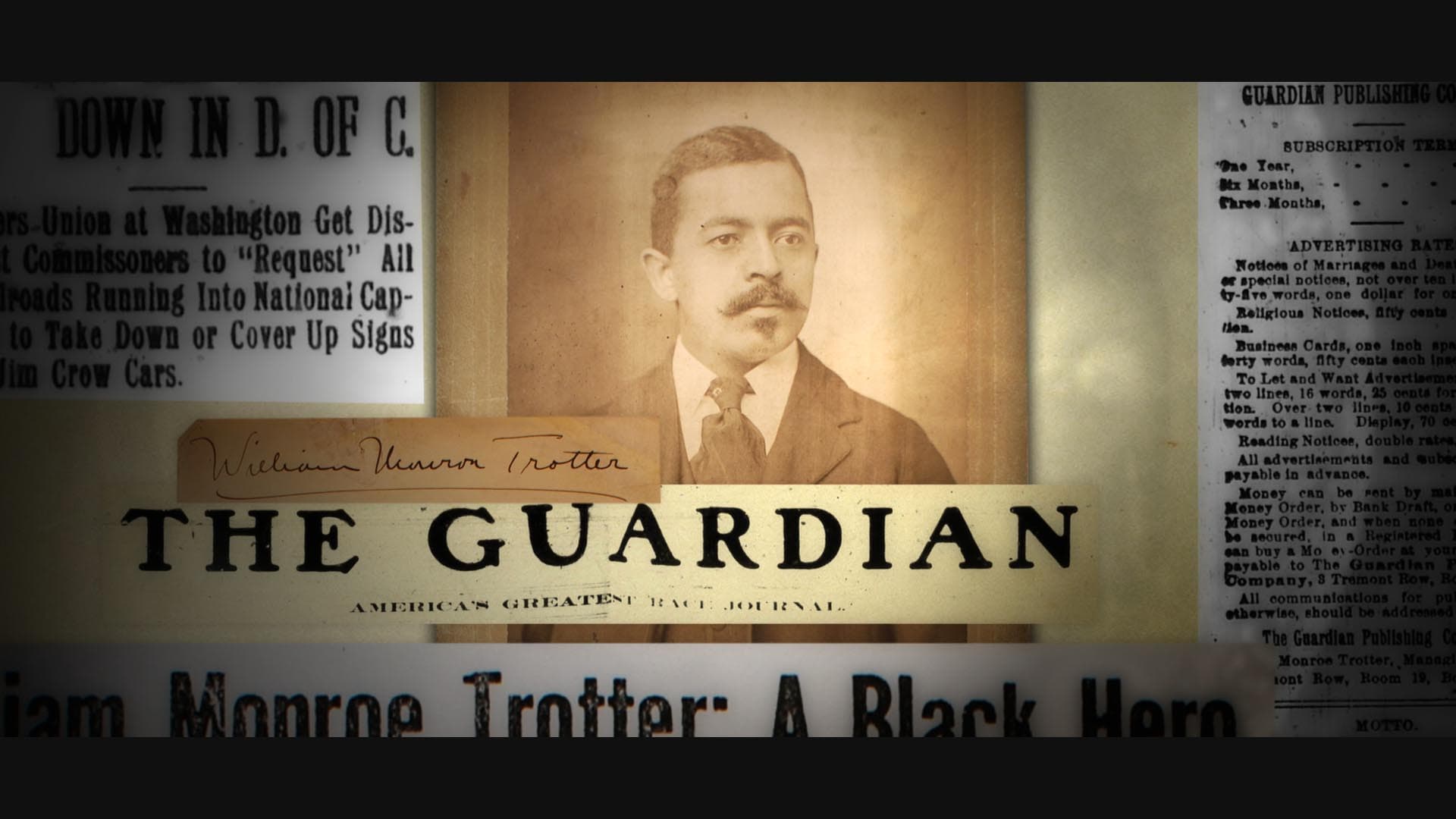
D.W. Griffith's "The Birth of a Nation" was America’s first epic blockbuster, and the first feature film to screen at the White House.
The 1915 film’s plot glorified the Ku Klux Klan in a re-imagined post-Civil War America. Packs of white men wearing hoods thunder through "Birth of a Nation" on horseback while white actors in blackface play slaves who turn lawless and violent after being freed.
The new, locally made documentary "Birth of a Movement" explores "Birth of a Nation" through a modern lens. It premieres at the Somerville Theatre on Monday, Jan. 30, and airs nationally on PBS on Feb. 6.
Harvard professor Vincent Brown is one of more than a dozen contemporary scholars who appear in the documentary to comment on the initial impact Griffith’s film had on popular culture and its enduring significance today.
"The film is about history — writ large. It's about the Civil War and Reconstruction and the nation — the birth of a nation,” Brown states emphatically. “It just so happens that the American nation has to be born out of white supremacy.”
" 'Birth of a Nation' has the flaws of being terribly racist, of being historically inaccurate and propagandistic in a way that jeopardized the lives of black people," said William Jelani Cobb, of Columbia University. "But it was also the most pure, honest, unfiltered distillation of white racial thought at that time."
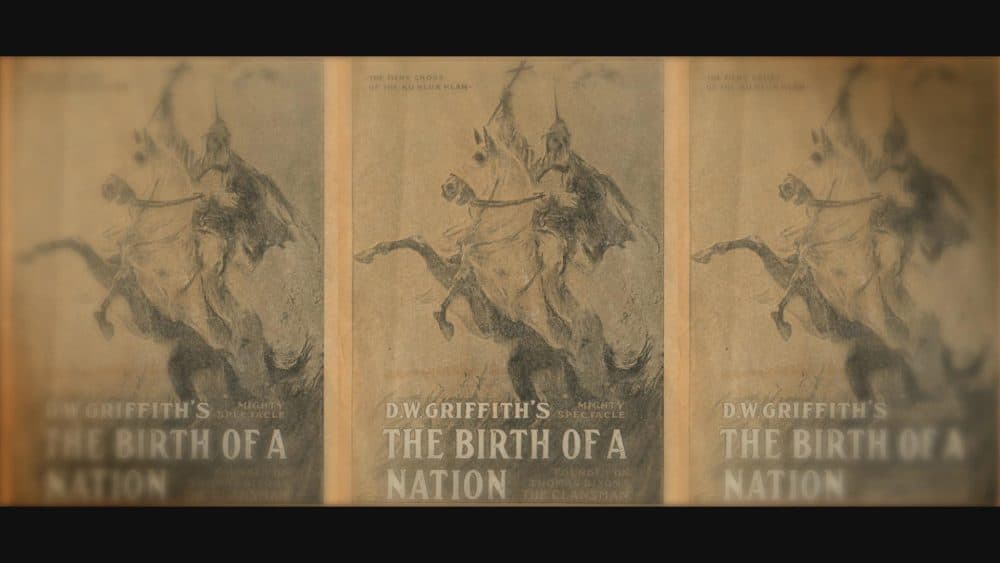
"Birth of a Nation" was, and still is, a pioneering cinematic work. Susan Gray co-directed "Birth of a Movement" and calls Griffith a master at visual storytelling and the nascent art of film editing. She says 1915 audiences responded to the director’s skilled command of the new medium of film.
“He was taking all these techniques that were out there and putting them together and making them come together in a way that was really emotional,” Gray said. Griffith used innovative camerawork to capture sweeping southern landscapes, intricate battle scenes and swarms of actors.
The South-North saga runs more than three hours and captivated viewers who, before “Birth of a Nation,” had likely only seen short, nickelodeon moving pictures of people juggling or dancing.
“So people were putting themselves into this film, and what they were being told was rewriting history," Gray explained. "There were a lot of whites from the countryside just being bused in, flocking to see it.”
Enter the documentary's protagonist, William Monroe Trotter. This radical civil rights leader recognized “Birth of a Nation’s” potential danger back in 1915. “Birth of a Movement” tells the story of his crusade to keep Griffith's now notorious film from screening in Boston.
Trotter mobilized the African-American community to protest after the film’s Los Angeles premiere. In the documentary, he’s portrayed in re-enactments by a somewhat unexpected but fitting amateur actor: former NAACP Boston branch head Michael Curry.

"Needless to say it was a shock to me — and a dream come true," Curry, who is now on the NAACP's national board of directors, admitted.
As a civil rights organizer himself, Curry says he connected deeply with the role and with what Trotter and the African-American community dared to do. "Thousands risked their jobs and lives to march on downtown Boston and to get arrested and to challenge the release of that film," he said.
Curry recalls leading marches and protests himself, and says his own experiences helped him bring Trotter to life.
“I’ve spoken on these issues, I’m passionate, it’s in my DNA.” Curry mused. “So it’s essentially taking that passion that William Monroe Trotter has in 1915 — and that I have in me — and then allowing that to play out in my portrayal of Trotter.”
Curry adds that before he was cast for the part he had a relatively superficial understanding of Trotter’s campaign. “It was really in preparation for the film that I got exposed to that history and the sacrifice of William Monroe Trotter in combating the racist images in the film,” he said.
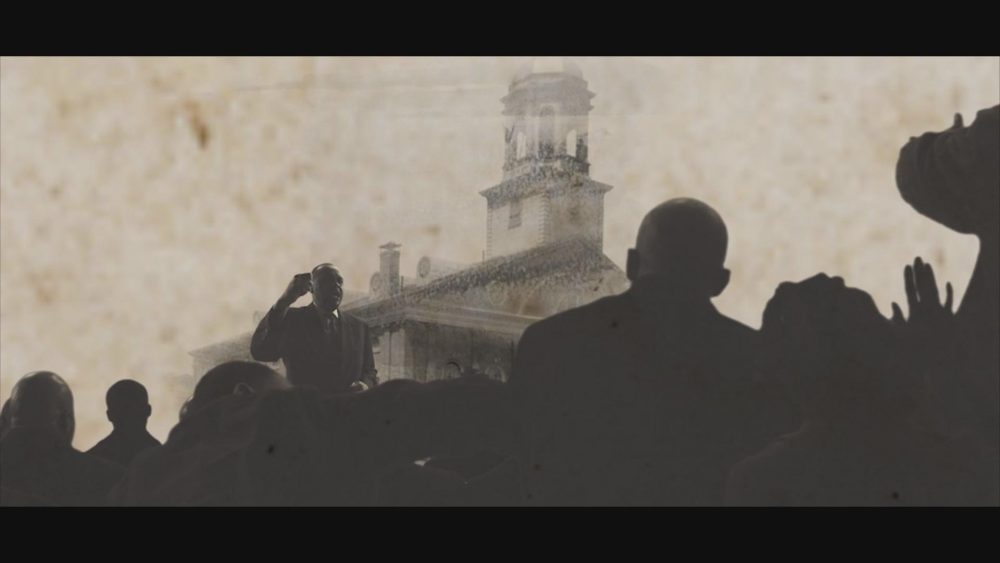
Author and Boston University professor Dick Lehr was familiar with the name Trotter, but not the layers of dramatic history behind it. The former Boston Globe reporter stumbled on an article about the radical journalist/agitator, which led to the in-depth research he ultimately distilled into the 2014 book, "The Birth of a Movement: How 'Birth of a Nation' Ignited the Battle for Civil Rights." That chronicling is the basis for the new documentary about Trotter.
"He was a big deal in the early 1900s -- not just in Boston — but nationally," Lehr said.
Both the book and documentary detail Trotter’s Boston upbringing. His parents were both the offspring of southern slave masters and black women slaves. They moved to abolitionist Boston, and the young Trotter grew up privileged in Hyde Park. He went on to become the first man of color to earn Phi Beta Kappa at Harvard, where he was a classmate of W.E.B. Du Bois.
Trotter went on to found and edit the Boston Guardian, an independent African-American newspaper. And he helped create the Niagara Movement, which was the precursor to the NAACP. In 1914, Trotter challenged President Woodrow Wilson at the White House for supporting segregation. A year later, Trotter would be waging a hometown battle against “Birth of a Nation.”
“It’s Trotter’s book,” Lehr said about his written exploration of the Boston-native’s fight to block "Birth of a Nation." “You know, the movie and the protest become a vehicle to try to bring Trotter back from the dustbins of history and to restore his place -- because he really was at the forefront of what became a civil rights strategy.”
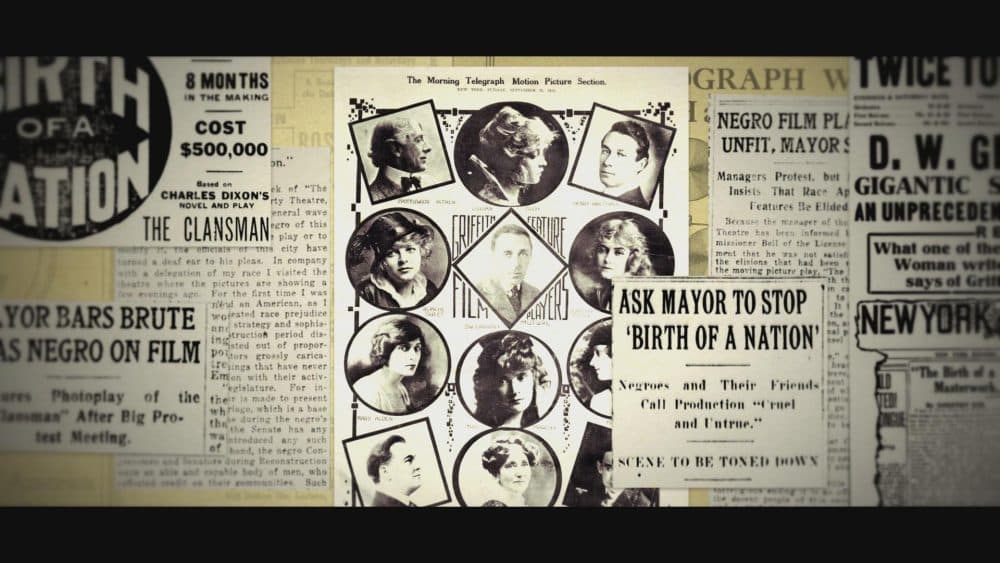
Several scenes in the film re-imagine Trotter’s oratory skill, along with his steadfast ability to initiate direct political action. The clash between him and Griffith’s film culminate on Boston Common.
But his 1915 protest was not Trotter’s first attempt to keep the story in Griffith’s film out of Boston. The source material for “Birth of a Nation” was a novel by Thomas Dixon, titled “The Clansman.” The author adapted it into a play, and documentary co-director Susan Gray says Trotter was successful in convincing then Mayor Michael Curley to force the offensive work from the stage in Boston.
“Mayor Curley banned [the play], and then 10 years later the film comes out there was this huge industry behind it, a lot of money, the president,” she recalled. “And even though it’s the same person being asked to ban it for all the same reasons, he didn’t the second time because now he was dealing with something that was economically too large and too important.”
In the end Trotter lost that fight against “Birth of a Nation.” It opened at the Tremont Theatre, which stood where the AMC Boston Common is now. In response, Trotter and a crowd of African-Americans amassed outside the cinema. They tried to get tickets, but black patrons were not allowed.
“Trotter demands a ticket," Lehr narrates in the documentary. "One of the officers in plain clothes sucker punches Trotter. Trotter is placed under arrest and dragged out of the lobby.”
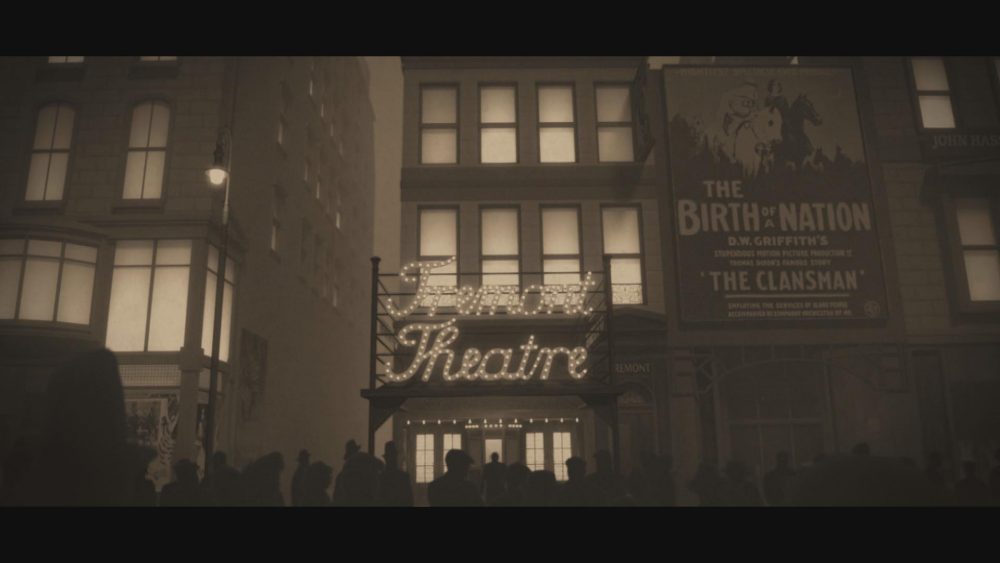
Protests continued for months, but ultimately the country embraced "Birth of a Nation."
Documentary co-director Bestor Cram says Trotter was right in predicting that film’s potential to influence popular opinion. “Birth of a Nation” fueled a resurgence of the white supremacy movement in the years after it premiered.
“You had basically a non-existent KKK organization that grew enormously,” Cram said.
Millions of Americans watched Griffith’s film, and the director went down in history as the father of American cinema. Trotter’s story, on the other hand, has been largely forgotten.
“A lot of black history in Boston is not on the front burner, so it’s not surprising to me that his story is not one of the most frequently recited,” said Barbara Lewis, director of the William Trotter Institute at UMass Boston. She reminds us that today we can also find a Trotter school and a Trotter Court in the city.
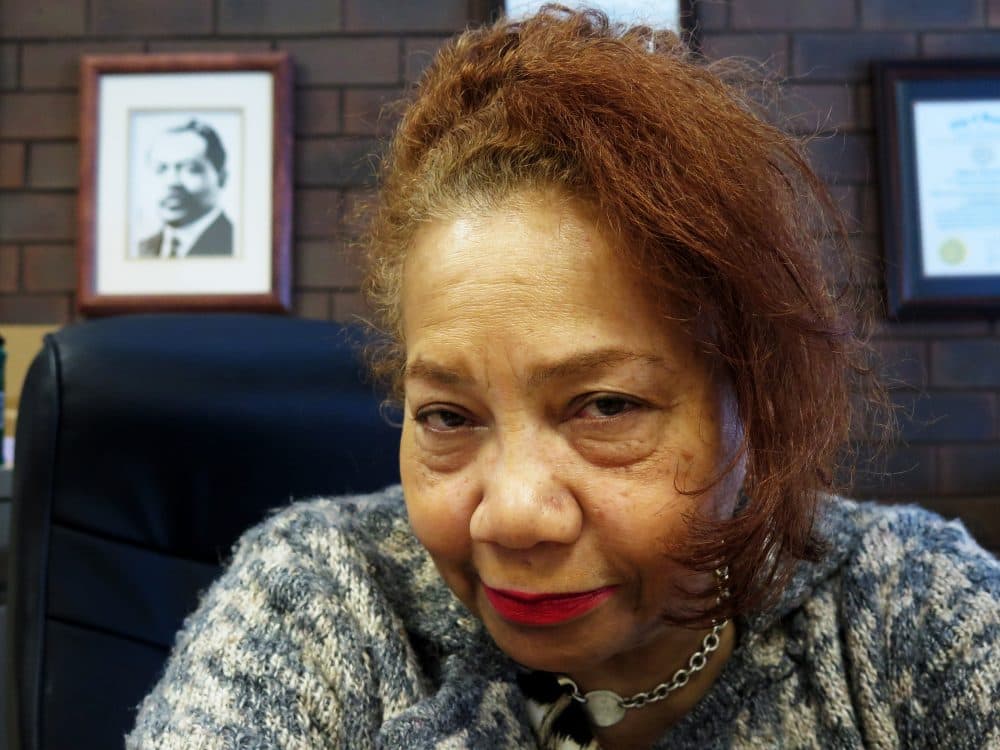
While there’s more awareness of the blatant bigotry in “Birth of a Nation” these days, Lewis says she hopes this new documentary ends up in classrooms and beyond, so the younger generation can learn about Trotter and his place in both Boston and national history.
“I hope it gets out into the mainstream and that there’s much more attention paid -- not only to Trotter himself -- but also certainly to those times and to the role of film,” Lewis said, adding that his story is as relevant today as ever.
Trotter did not give up his fight. In 1921 he and the NAACP won their lobby to get a revival screening of "Birth of a Nation" banned in Boston.
"Birth of a Movement" is premiering Monday, Jan. 30, at the Somerville Theatre. It has its broadcast premiere on PBS’ Independent Lens on Feb. 6.


